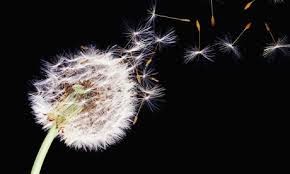 Fifty years ago this week occurred one of the defining moments of all who experienced it, whether it was realized at the time or no.
Fifty years ago this week occurred one of the defining moments of all who experienced it, whether it was realized at the time or no.I refer, of course, to the assassination of President John F. Kennedy.
It's one of those moments when, if asked, you will always remember.
Some will remember television or radio broadcasts.
Some reporters remember hearing of his death from the priest who administered the sacrament of Last Rites.
Others remember hearing of the death during a Boston Symphony concert, when Erich Leinsdorf, the then Music Director of the Boston Symphony Orchestra, announced to an afternoon audience of concert-goers, and changed the program to play the Funeral March from Beethoven's Third Symphony.
The musicians in that orchestra will remember that they heard of it as the music librarian was distributing copies of the music for the changed program, from whispered words from that librarian.
On that date I was just a few weeks past my eleventh birthday, and didn't fully grasp why we had all been let out of school early that day.
It was not until much later that I appreciated the import of that day, not for the assassination itself, but in the legacy that was left behind from his administration, and for the potential that had been stolen from the nation..
Part of that legacy was the feeling that someone who was not one of the "elite" could represent the nation from that chair in the Oval Office. It didn't matter to us that he came from a wealthy and influential family. It didn't matter that he went to a prep school and went to Harvard. He was from Irish stock from Brookline. It diden't matter that his family lived for years in New York. He was still "one of us" a Massachusetts boy.
Even more momentous, he was a Roman Catholic at a time when some expressed fears that he would take secret orders from the Pope.
All of these changes felt like they were the proverbial winds of change, opening up a new world for the country, where we felt that we could do great things, both as a nation, and as an individual.
The years that saw the Peace Corps with individuals making a difference, and the start of the Apollo space program, showing what we could do, as a nation.
There were missteps.
The Bay of Pigs.
The reluctance to push for meaningful Civil Rights legislation, for fear of losing the southern Democrat voting block.
But he did start work of landmark legislation, which was only enacted after his death. PBS commentator and producer Callie Crossley remembers that, as she was growing up, most black families had a commonality of three pictures on their walls: Jesus Christ; Dr. Martin Luther King, Jr. and John Kennedy. These were all men who had given their lives and their opportunity for the betterment of others. And all three had been taken from the world in their prime.
When I was growing up, and in college, and when I started working, I felt that the ideas of fairness and opportunity for all had become a part of the normal fabric of our society, where what you could do far outweighed where you came from, or who you knew.
I guess I always knew, when I would admit it to myself, that the truth was that for true advancement it was who you knew, rather than what you could do. But there were opportunities opening up, even if not as truly egalitarian as we had hoped and believed.
Perhaps now we are more cynical, or realistic, when state unemployment counselors now coach on how to build "networks," over how to best present your skills in a cover letter or in an interview.
Who you know.
We know that it wasn't really that perfect a time. But we hoped. And we were inspired.
Kennedy was friends with Poet Laureate Robert Frost, and would quote from Frost in his addresses.
I'll close here with some lines from Frost, from a poem of his that often brings me to think on potential that is otherwise unseen:
"The woods are lovely, dark and deep.
But I have promises to keep,
and miles to go before I sleep,
And miles to go before I sleep."







